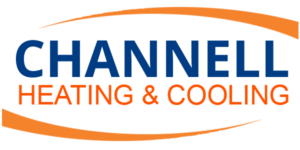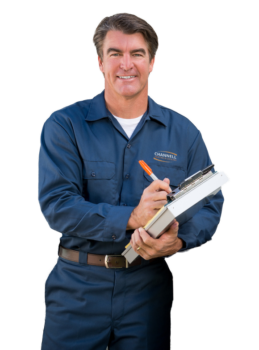Homeowners often wonder if frequent rainfall can damage their outdoor AC unit. Thankfully, air conditioning systems are built to withstand most weather patterns, rain included. However, other weather-related components may be harmful to your air conditioning and heating system.
The Channel Heating and Cooling team keeps the concept of rain damage to outdoor units in mind. Heavy rainfall should not affect an outdoor unit alone, but we have compiled a guide to protecting your system from the added factors of frequent rains!
Rain and Your Outdoor AC Unit
The hardware on outdoor AC systems protects its electrical and mechanical components from water damage. Certain metals and other materials prevent corrosion from occurring inside a unit.
Rain can also help the removal of dirt and twigs from the inside of your outdoor system. However, air conditioners should still acquire professional cleaning to ensure they function correctly.
Severe Weather Precautions
Although outdoor air conditioning units are relatively weather-friendly, extreme conditions can still harm the unit’s overall operation and cause the need for AC repairs.
Strong Winds During Storms
Heavy rain during storms is not usually a threat to an outdoor unit, but strong winds can occasionally cause damage. Wind can deposit debris inside the unit. It can also cause tree branches to fall, running the risk of some landing on the system.
The interior and exterior of the unit should be examined for damages following any storm, especially those with heavier winds.
Flooding
An excess of standing flood water can be detrimental to your outdoor system. If water from floods exceeds more than 15 inches in depth, it is best to contact a professional to inspect the unit before turning it back on.
HVAC units cannot safely operate while submerged in water. So, failure to turn off an outdoor system during a flood could result in:
- Risk of electrical shock
- Fire hazards
- Water seeping into home
- Costly damage to Unit
Outdoor units can be elevated off the ground using a durable platform, possibly preventing standing water from submerging the system.
Lightning
Similar to floods, it is best to turn off your AC system during periods when it is lightning. Lightning can cause power surges if it strikes your home, possibly damaging your outdoor unit.
Outdoor systems can become unusable if hit by lightning, thus requiring HVAC repair or replacement. Turning your AC unit off during lightning storms can help prevent hefty damages from occurring.
Internal Corrosion From Moisture
Internal components of the air conditioner unit are susceptible to corrosion if overly exposed to moisture. During Winter, snow and humidity can seep through openings in the AC unit, potentially damaging the internal metals. In serious cases, over time, these conditions could even cause the need for a full AC system replacement.
Coverings that allow ventilation can help prevent corrosion from occurring. Do not cover the unit with plastic bags, as that can trap moisture in the system and cause mold or mildew to grow.
If corrosion does occur within your outdoor unit, it is best to call a technician for repairs before the issue worsens.
Contact Us!
The weather can occasionally cause problems for outdoor units. Our technicians at Channell Heating & Cooling are here to help with any HVAC repairs you may need in Crystal Springs, Brookhaven, Terry, Hazelhurst, and the surrounding areas. If the weather conditions have caused issues with your HVAC system, give us a call at (601) 255-7347 today, or request an appointment online!




